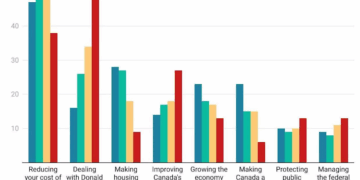For another controversial product, vaccines. An anti-vaccine person approaches you and says, “97 percent of doctors say that the side effects of vaccines are real.” What would you say in response? You’d probably say, “Yeah but the benefits far outweigh the side effects.”
By saying that “97% of doctors agree that vaccine side effects are real” without mentioning any of the benefits of vaccines, the anti-vaccine activist is trying to get you to look at the potential dangers of vaccines out of context. When fossil fuel opponents say “97 percent of climate scientists agree that climate change
Is real,” they are doing the same. Yes, using fossil fuels for energy has a side effect—increasing the amount of CO2 in the atmosphere. Okay. But what about the upside? In the case of fossil fuel that upside is enormous: the cheap, plentiful, and reliable energy that makes
Modern life possible, and at a scale no other energy source can match. So, how significant is the side effect? This raises another problem with the statement “97% percent of climate scientists agree that climate change is real.” It tells us nothing about the meaning or magnitude of “climate change”—whether it’s a mild,
Manageable warming or a runaway, catastrophic warming. This is an example of the fallacy of equivocation—using the same term in different, contradictory ways. If someone were to say “97% of doctors agree that vaccine side effects are real,” what exact “vaccine side effects” do the doctors agree on? That a certain number of babies
Will get a rash? Or that large percentages will get full-blown autism? Precision is key, right? But fossil fuel opponents don’t want you to know the precise magnitude of climate change. Because if you did you wouldn’t be scared of climate change, you would be scared of losing the benefits of fossil fuels.
For example, listen to how Secretary of State John Kerry manipulates the “97 percent of scientists” line. “97 percent of climate scientists have confirmed that climate change is happening and that human activity is responsible,” he said in a speech in Indonesia in 2014.
Later, in the same speech, he claimed that Scientists agree that, “The world as we know it will change—and it will change dramatically for the worse.” 97 percent of climate scientists never said any such thing. So what did the 97 percent actually say? It turns out, nothing remotely resembling catastrophic
Climate change. One of the main studies justifying 97 percent was done by John Cook, a climate communications fellow for the Global Change Institute in Australia. Here’s his own summary of his survey: “Cook et al. found that over 97 percent [of papers surveyed]
Endorsed the view that the Earth is warming up and human emissions of greenhouse gases are the main cause.” “Main cause” means “over 50 percent. But the vast majority of papers don’t say that human beings are the main cause of recent warming. In fact, one analysis showed
That less than 2 percent of papers actually said that. How did Cook get to 97 percent, then? First, he added papers that explicitly said there was man-made warming but didn’t say how much. Then, he added papers that didn’t even say there was man-made warming, but he thought it was implied.
A scientific researcher has a sacred obligation to accurately report his findings. Cook and researchers like him have failed us—as have the politicians and media figures who have blindly repeated the 97 percent claim to support their anti-fossil fuel goals. How can we protect ourselves against this kind of manipulation? Whenever someone tells
You that scientists agree on something, ask two questions: “What exactly do they agree on? And, “How did they prove it?” I’m Alex Epstein, author of The Moral Case for Fossil Fuels, for Prager University.

































 Reaction & Commentary
Reaction & Commentary









